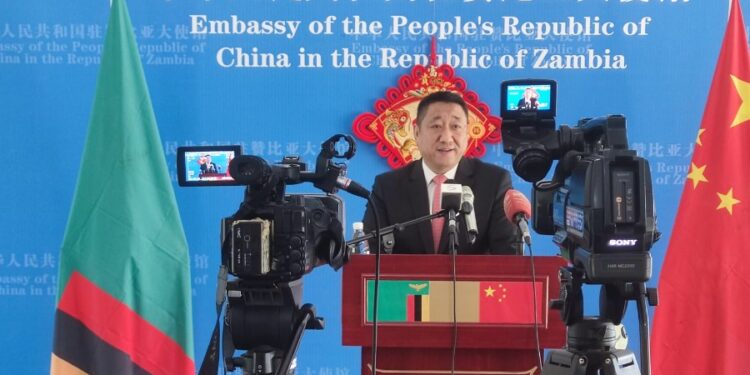
The Chinese Embassy in Zambia has issued a strong rebuttal to a recent documentary aired by local investigative outlet News Diggers, accusing the programme of misrepresenting China’s role in Zambia’s development and investment landscape.
The documentary, titled Chinese Investment in Zambia – The Good, The Bad and The Dangerous, sought to examine the multifaceted nature of China’s economic presence in the southern African nation.
However, Beijing’s mission in Lusaka says the film veered into distortion and “unbalanced reporting,” painting a skewed picture of the partnership between the two nations.
In a statement released by the Embassy’s spokesperson, Chinese officials argued that the production ignored the substantial benefits of Chinese investment in Zambia, choosing instead to highlight “isolated criminal incidents not directly linked to Chinese enterprises.”
“The documentary unfairly downplayed China’s economic and social contributions to Zambia,” the statement read, adding that News Diggers failed to reflect the broader, positive impact of Chinese-led projects on Zambia’s infrastructure, job creation, and local development.
The Embassy went further, calling into question the journalistic ethics behind the report. “The documentary lacks professional integrity,” the statement said.
“We urge News Diggers to uphold factual reporting standards and avoid misleading narratives that may jeopardise the cordial relations between China and Zambia.”
China has long been a major investor in Zambia, financing roads, schools, hospitals, and telecommunications infrastructure.
Yet the scale of its involvement has not been without controversy, with critics raising concerns about debt dependency, environmental practices, and labour conditions at Chinese-run enterprises.
Despite this, the Embassy maintained that the relationship is grounded in mutual respect and development, and urged local media to play a constructive role in deepening understanding between the peoples of both countries.
As tensions simmer over media scrutiny and foreign influence, the clash underscores the growing sensitivity around international investment narratives on the African continent.



